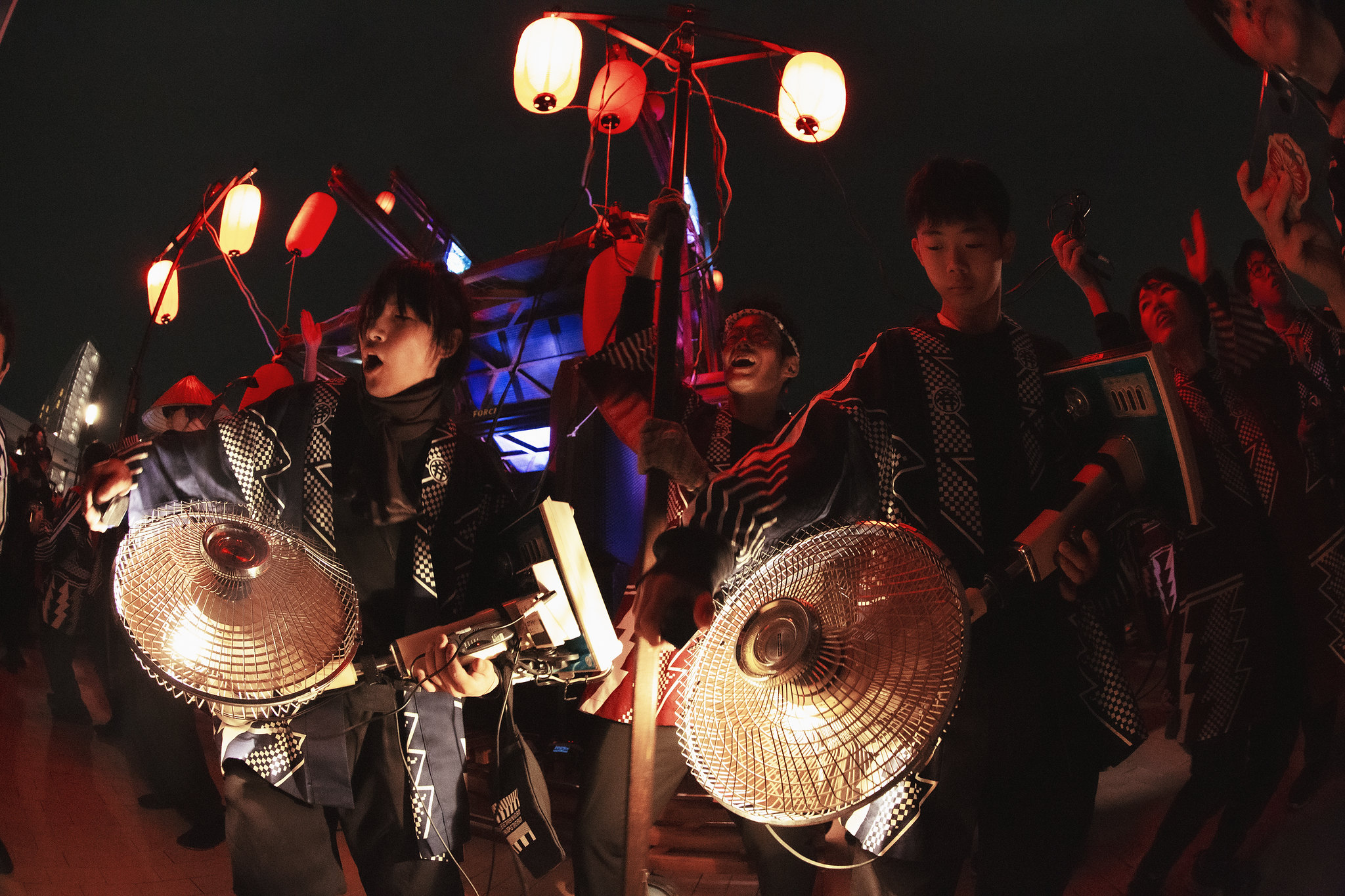Music is a central component of the Ars Electronica Festival. From September 4 to 8, visitors can expect a diverse program ranging from classical to digital music
Music belongs to Ars Electronica like a concert belongs to a festival – so it is no coincidence that this year’s Ars Electronica Festival program will bring together friends of music, dance and performance. Between sounds and experiments, between digital and classical, the musical program runs through all festival days. From September 4 to 8, there will be plenty to listen to on one of the world’s largest stages for media art.

Media and art
An orchestra with robots, experimental music and interactive performances – the concerts at the Ars Electronica Festival 2024 promise all this and more. The “Digital Music & Sound Art” category has been part of the Ars Electronica Prix for over 30 years, making classical, rock and futuristic performances from all over the world an integral part of the Ars Electronica Festival. “Media art plays a key role at Ars Electronica”, explains Christl Baur, Head of Festival. “We have a wide variety of programs every year. On the one hand, there is the experiment between classical music and media art, on the other hand, there is also a danceable program and interactive performances for all tastes. The track hall at POSTCITY in Linz offers us a special venue for classical concerts, and we will also make the Mariendom and the Domplatz shake,” says a delighted Baur.
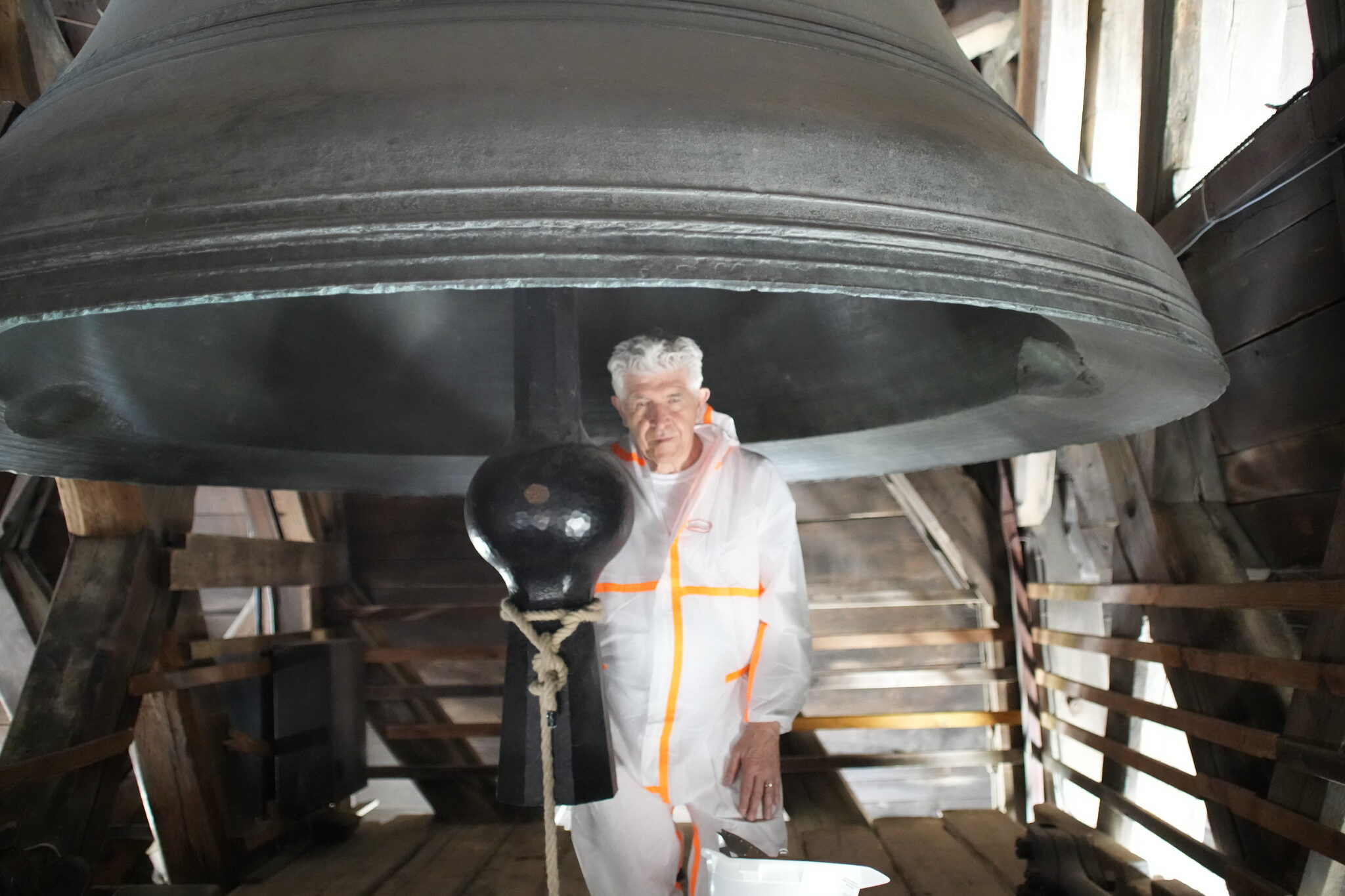
Festival Opening: Happy Birthday, Anton Bruckner!
Unusual, fantastic, thrilling – the official festival opening will take place free of charge on September 4 in and in front of St. Mary’s Cathedral and is not only a commemoration of the 200th birthday of the great composer Anton Bruckner, but also the setting for entangled photons, Linz organs, the bells of Notre Dame and a melting glacier. It is no coincidence that the Mariendom was chosen: the cathedral whose votive chapel was consecrated in 1869 with Bruckner’s now world-famous “Locus iste” (“this place”).
Before the festival opens loudly, St. Mary’s Cathedral is shrouded in silence at night – with Bill Fontana’s “Silent Echoes”. The sound installation was created in cooperation with the European Capital of Culture Bad Ischl Salzkammergut 2024 and the Upper Austrian KulturEXPO Anton Bruckner 2024 and is a powerful artistic statement on the climate crisis. In 2019, Notre-Dame, the “soul of Paris”, a symbol of European culture, will burn. The bells are spared, but fall silent for years. They quietly “listen” to the hustle and bustle of the city and the sounds of the construction site. The American sound artist Bill Fontana makes this harmonious response of the bells audible through vibration sensors, transmits the sounds into the ice caves on the Dachstein and mirrors them as if in a duet with the sounds of the melting glacier – an impressive statement on climate change and the fragility of culture.
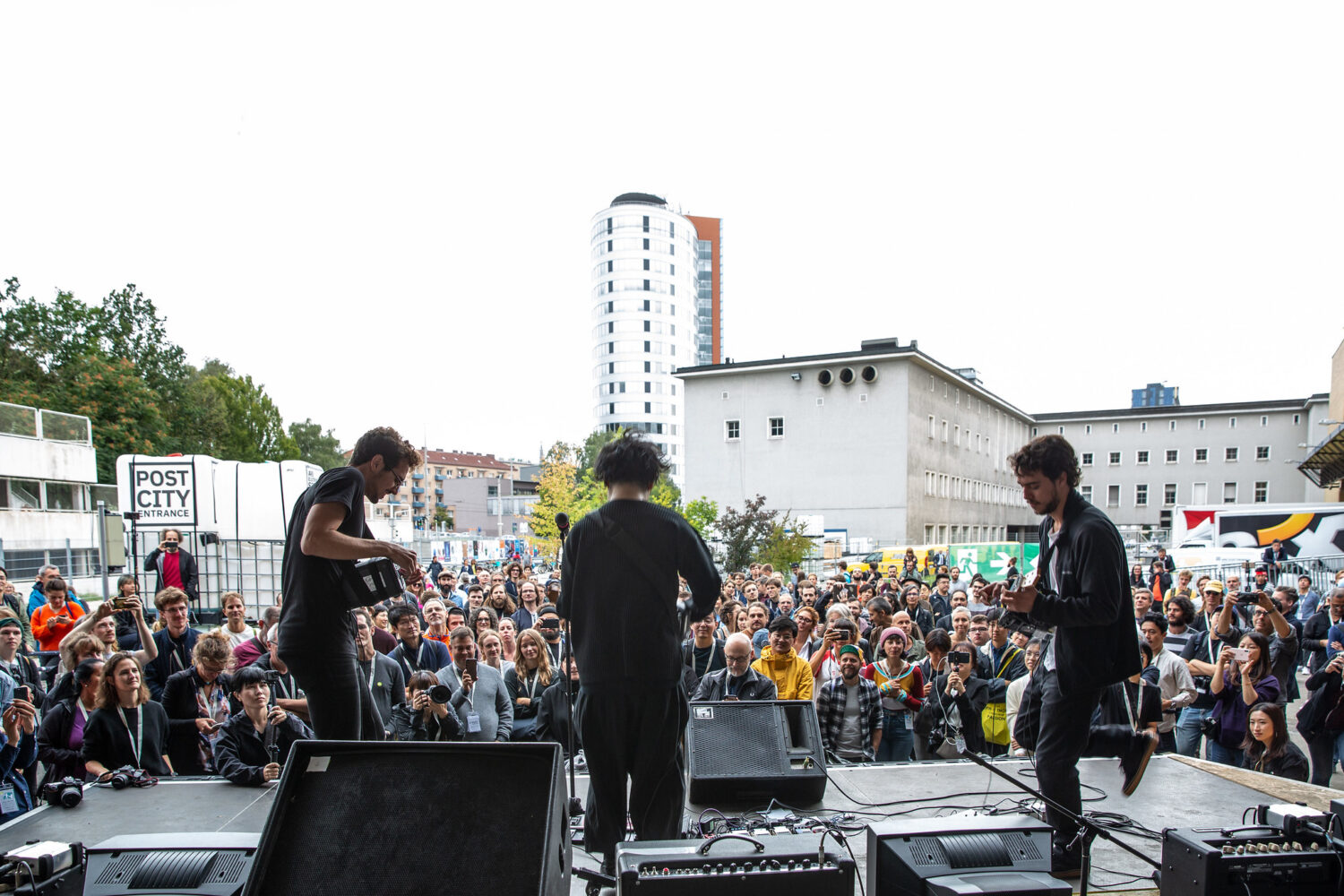
The official start of the Ars Electronica Festival kicks off on September 4 with Austrian soul newcomer Lou Asril on Domplatz, before the “ELECTRONICOS FANTASTICOS!” take over the stage with one of their inimitable concert performances, transforming discarded electrical appliances into sounding musical instruments. Then it’s off to the cathedral for a world premiere: the organ concert “BruQner – The Sound of Entanglement ” – the second quantum revolution as a musical spectacle. Lasers, mirrors, polarizers, non-linear crystals: an experimental set-up from the high-tech laboratory in the middle of Linz’s Mariendom promises a unique show, developed and built by a team of artists, organists, computer scientists and physicists. They are joined by entangled photons – the quanta of light – who become conductors, directing Bruckner’s Perger Prelude in a way that no human being in the world could. Two church organs play live and fill the cathedral’s spectacular sound space. “BruQner – The Sound of Entanglement” is a project of the Upper Austrian KulturEXPO Anton Bruckner 2024 in cooperation with Ars Electronica and with the kind support of LIT-JKU, VCQ, the University of Innsbruck, TU Wien, SFB – beyondC and the Cultural department of the City of Vienna.
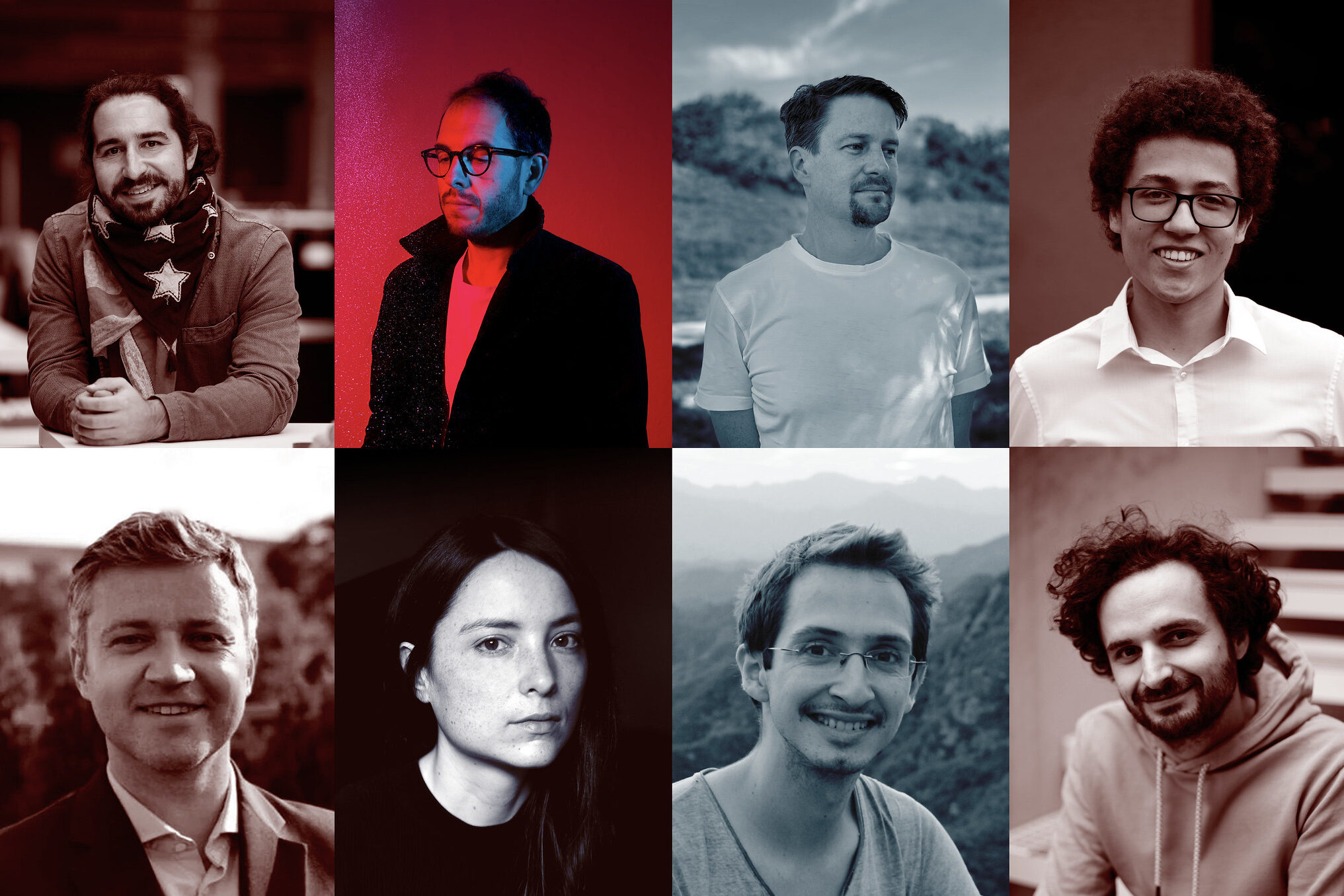
At 23:00, the stage belongs to the chamber musicians of long-standing Ars Electronica cooperation partner Bruckner Orchester Linz. They will play Anton Bruckner’s Symphony No. 7 WAB 107 in E major in the arrangement for ensemble (“Schönberg version”) by Hanns Eisler (movements I and III), Erwin Stein (movement II) and Karl Rankl (movement IV).
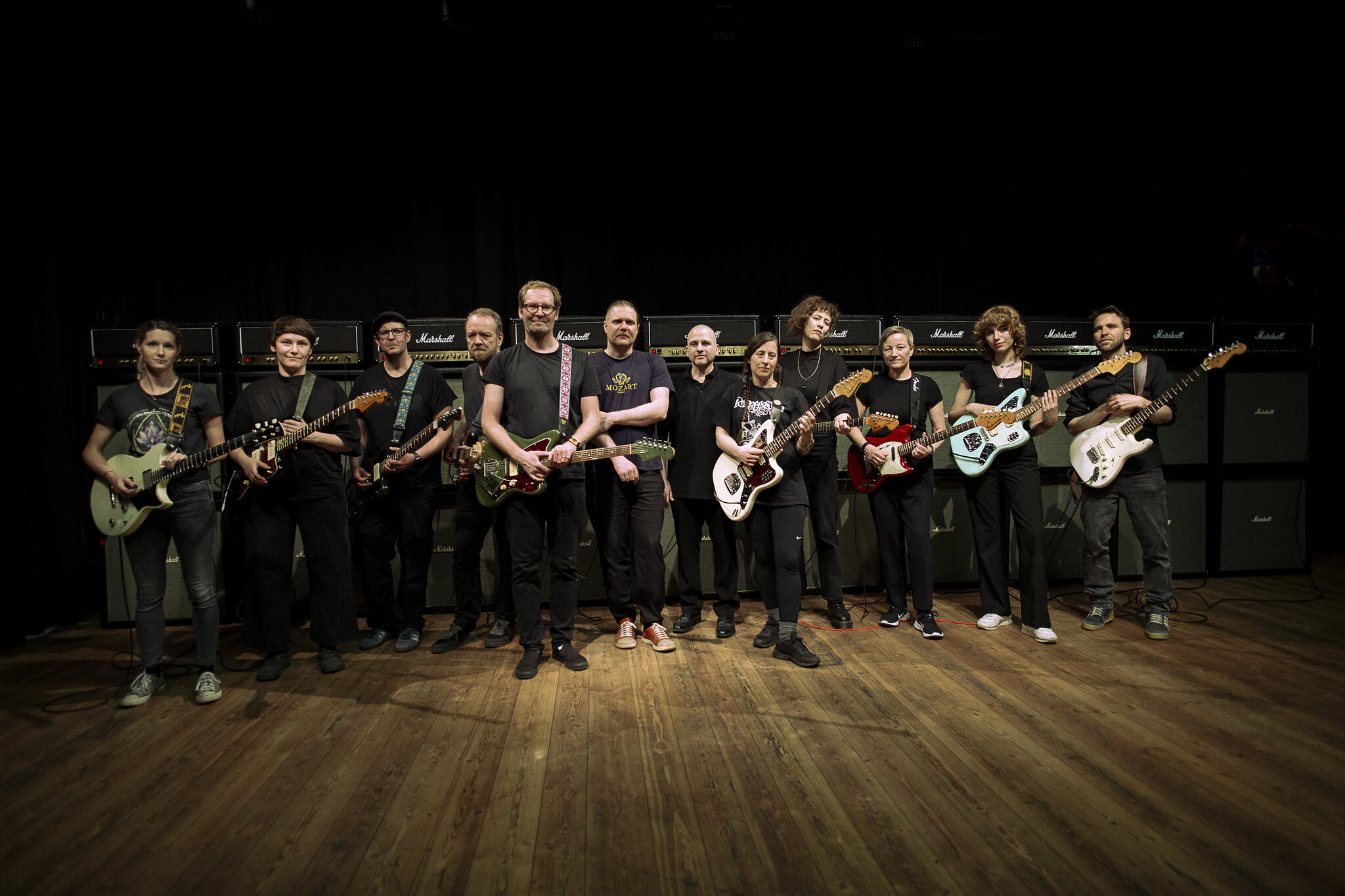
You can also expect great things from the 12-piece ensemble “NoFive” – a project of the Upper Austrian KulturEXPO Anton Bruckner 2024 – who will perform “Bruckner x Pop x No Wave”. A fusion of Bruckner’s Fifth Symphony and the iconic “Seven Nation Army” riff by the White Stripes, shaken up and stirred in Glenn Branca style. The ensemble of nine electric guitarists, a bassist, a drummer and a conductor let Bruckner’s Fifth oscillate between high and pop culture as an avant-garde soundscape until midnight.
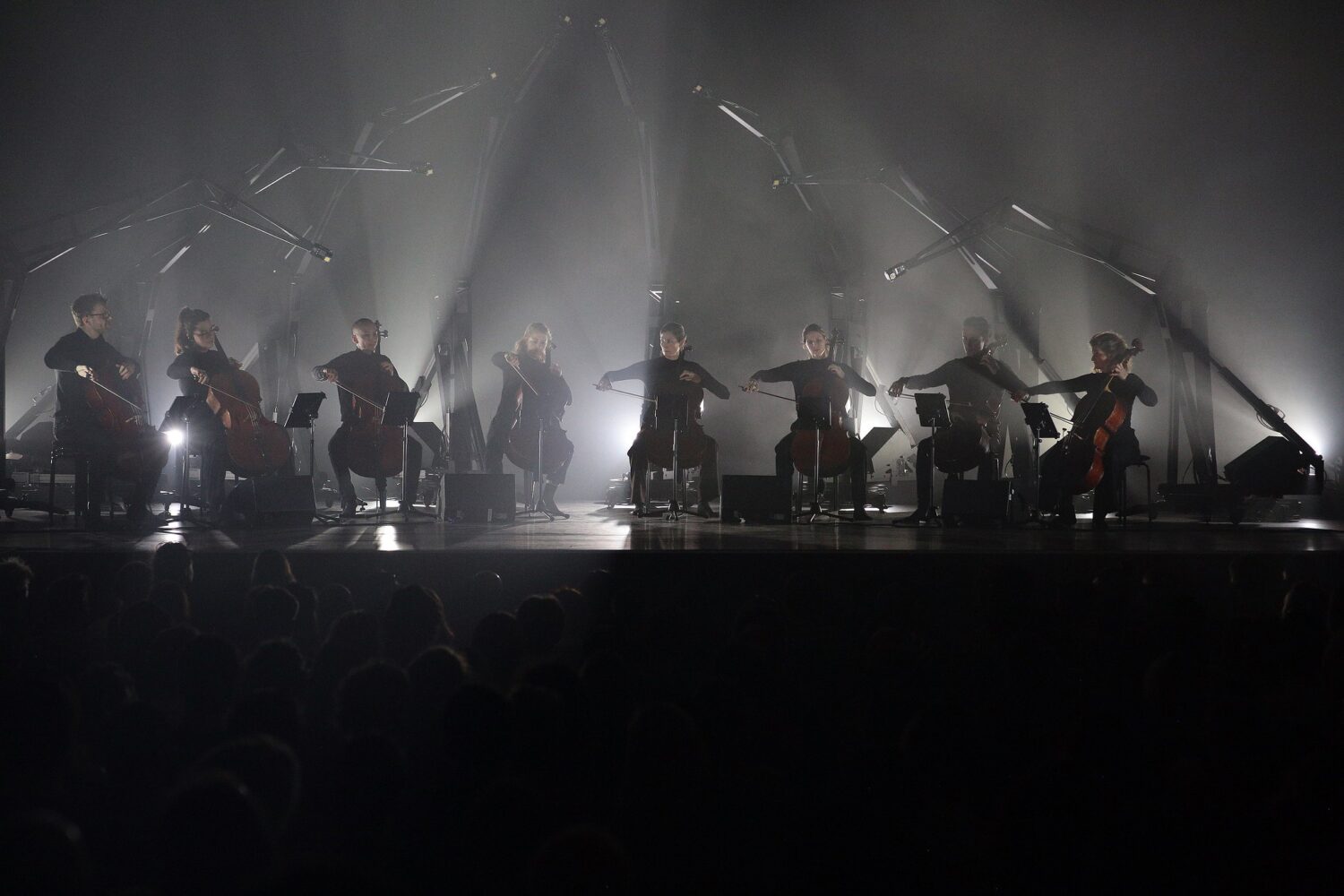
The main event: The big concert night
On Friday, the Gleishalle in POSTCITY will become the stage for the Great Concert Night presented in the context of ACuTe – Culture Testbeds for Interactivity, Performance and Technology, which is sold out months before the festival for good reason: The Cello Octet Amsterdam, a robot ensemble by Nick Verstand and pianist Maki Namekawa will make the night the highlight of the festival, which will meet and exceed expectations. The “Cello Octet Amsterdam” consisting of Claire Bleumer, Esther Torrenga, Genevieve Verhage, Alistair Sung, Rares Mihailescu, René van Munster, Sanne Bijker and Sanne van der Horst together with Nick Verstand will present a live performance that oscillates between creation and destruction and questions our future role in the earthly ecosystem. “Cocon” is formed by eight cellists and just as many robotic arms up to four meters high, all of which move to the rhythm of the music and form a cocoon. Pieces written for cello by internationally renowned artists such as Caterina Barbieri, Kara-Lis Coverdale, KMRU & Abul Mogard, Jesse Broekman and Qasim Naqvi will be performed.
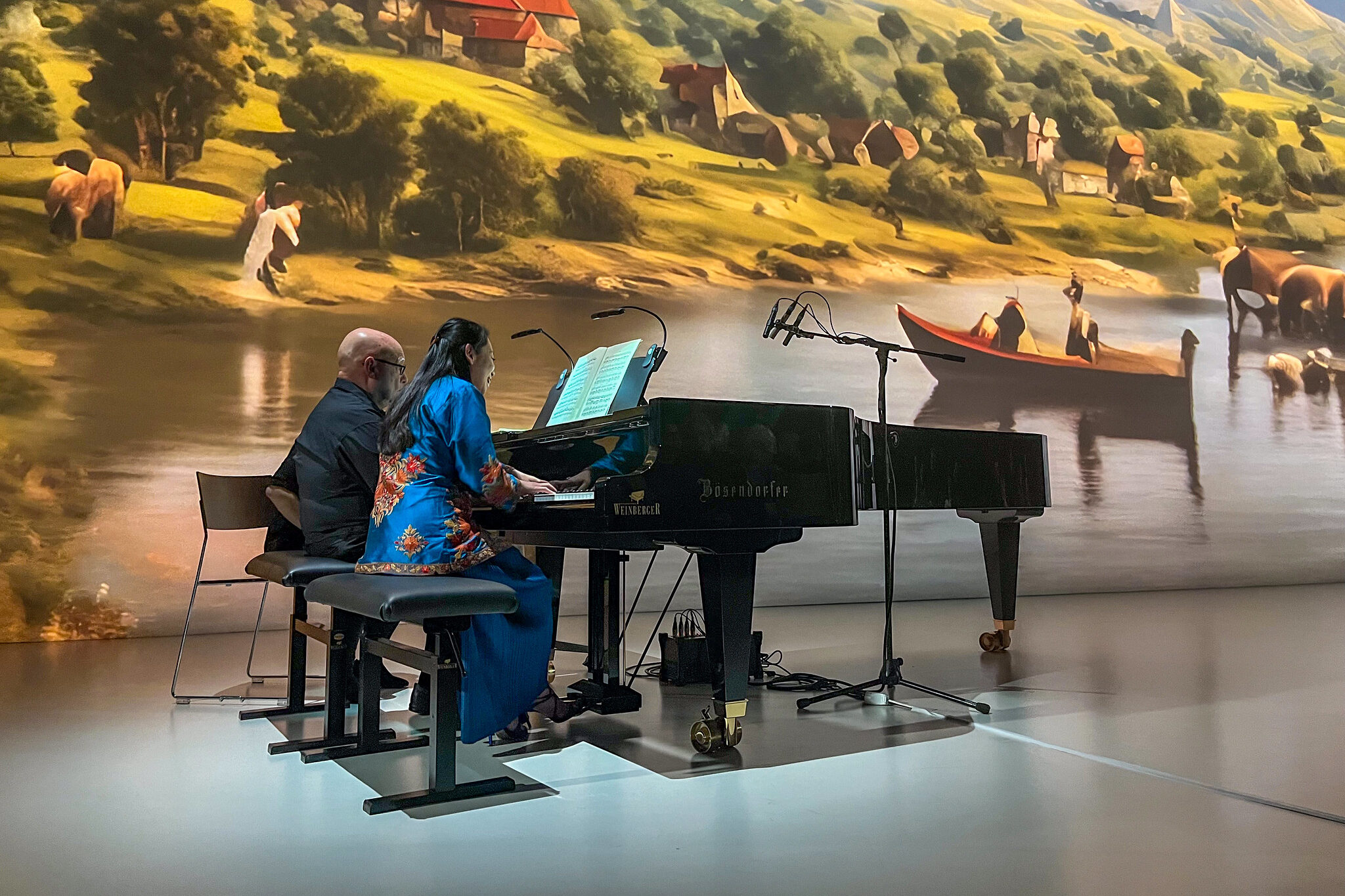
In the second part of this evening, the Cello Octet Amsterdam will perform “The Hours” and “Dracula” together with pianist Maki Namekawa. If you were unable to get tickets for this evening, you can see and hear the Cello Octet again on Saturday, September 7!
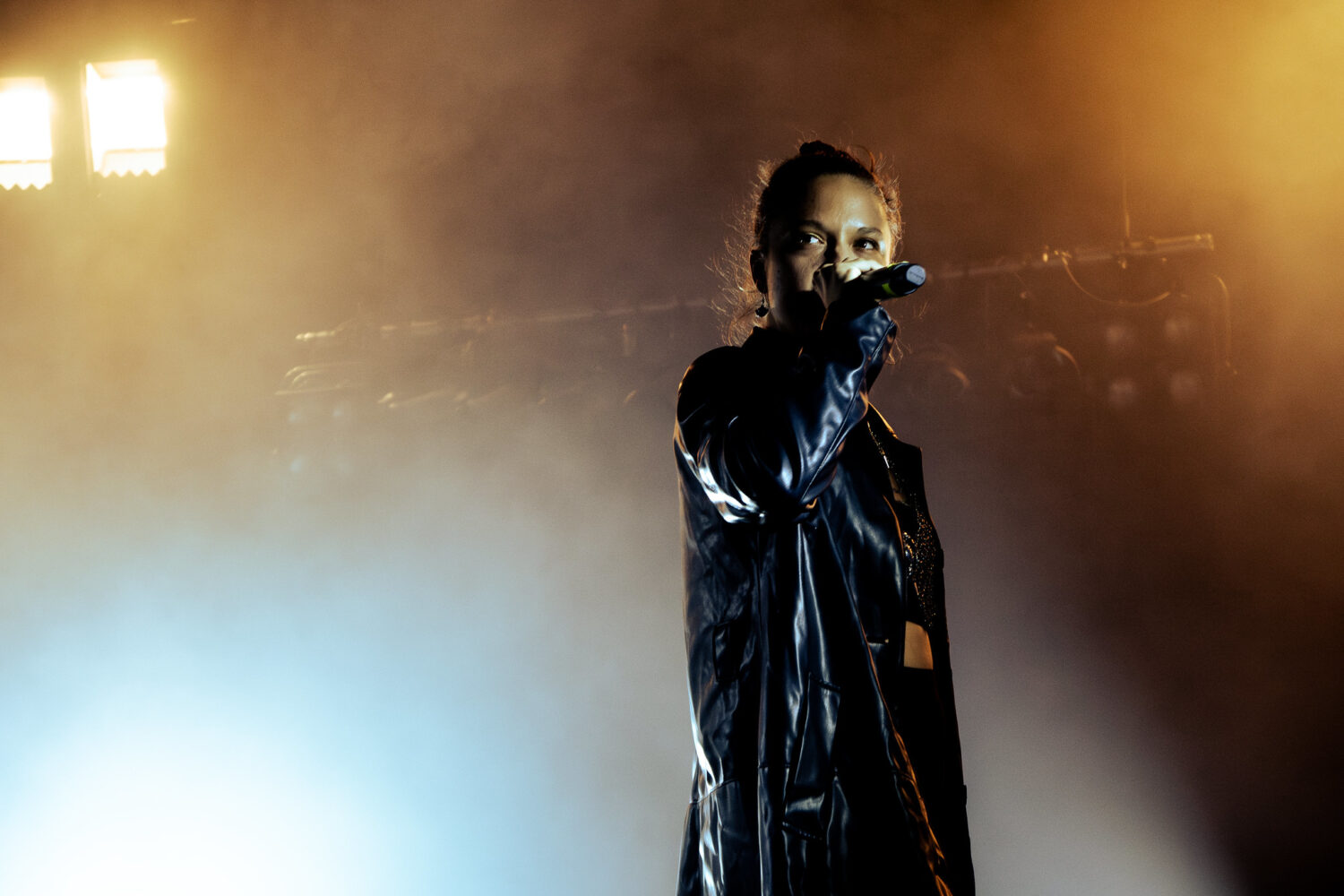
Afterwards and until 4 a.m., the acts of the Ars Electronica Nightline supported by Pro Helvetia will take place – an experimental dance program with contemporary electronic music that invites you to move, experiment and celebrate together: A pulsating party night with top-class musicians covering a range from hyperpop to rap and techno. The line-up includes Congolese-Austrian musician Kimyan Law, DJ NVST, who has already performed at Berghain in Berlin, and rapper Nathalie Froehlich.
Music and AI
To mark the 80th birthday of composer Dennis Russell Davies, Maki Namekawa and Davies will perform Bedřich Smetana’s famous piano cycle “Ma Vlast” in the train hall on Saturday. This performance will be accompanied by Cori O’Lan’s real-time visualizations created through the use of generative artificial intelligence. Smetana’s work, which focuses on the geographical, historical and cultural connection between the Czech Republic, Austria and Germany, will be presented in a new light through this visual accompaniment. The AI-based visualizations complement the musical performance with imaginary landscapes based on Smetana’s and Stifter’s descriptions, reflecting the complexity of our collective cultural memory. At a time of social uncertainty and recourse to national pride, this interdisciplinary performance makes it possible to experience the unifying power of art, music and technology.
Closing with a memory factor
Before the POSTCITY goes back to sleep, Dennis Russell Davies and his Brno Philharmonic Orchestra, who are guests in Linz for the second time, invite you to the Gleishalle once again at the end of the festival. With the M-Concerto by US composer Philip Glass and Maki Namekawa as soloist on the piano, they will conclude the Ars Electronica Festival 2024 on Sunday, September 8. Here, listeners will be immersed in the fascinating world of Philip Glass’ minimalist music, interpreted by Maki Namekawa and accompanied by the Brno Philharmonic Orchestra. The unique atmosphere of the Gleishalle and the innovative musical performance promise a concert that will certainly be remembered.
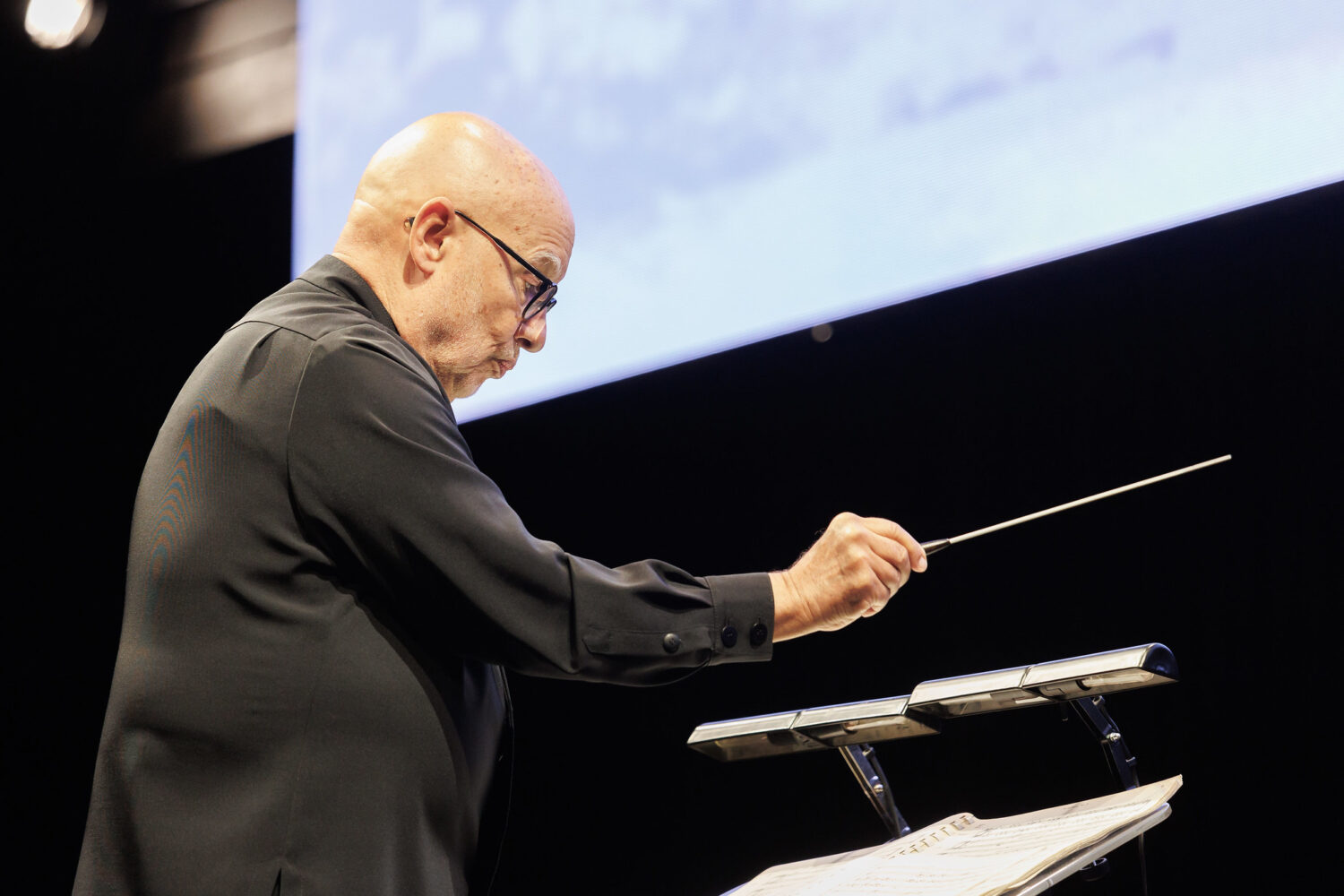
Versatile music and performance program
At the Festival for Art, Technology and Society, the unique mix of concerts, performances and DJ sets is a fixture every year. All interest groups can be captivated by the virtuoso skills of the protagonists on a total of five festival days. “No prior knowledge or listening habits are required to attend the musical performances at the Ars Electronica Festival. It’s an opportunity to tap into new communities, listen to unique sounds and delve deeper into the world of digital music,” says Christl Baur. She is particularly looking forward to Fabio Machiavelli’s performance “Machines inside me”, in which the audience itself becomes an actor when it comes to creating a “sound magma” from self-built instruments. “Organism” by Navid Navab is also an absolute must-see for Baur: a solo concert with a centuries-old pipe organ that is made to sound turbulent patterns with the help of robots. “So there won’t just be something to listen to, but something for all the senses to experience,” says the festival organizer happily.
The Ars Electronica Festival 2024 will take place in Linz from September 4 to 8 under the theme “HOPE – who will turn the tide”. Tickets are available here.
